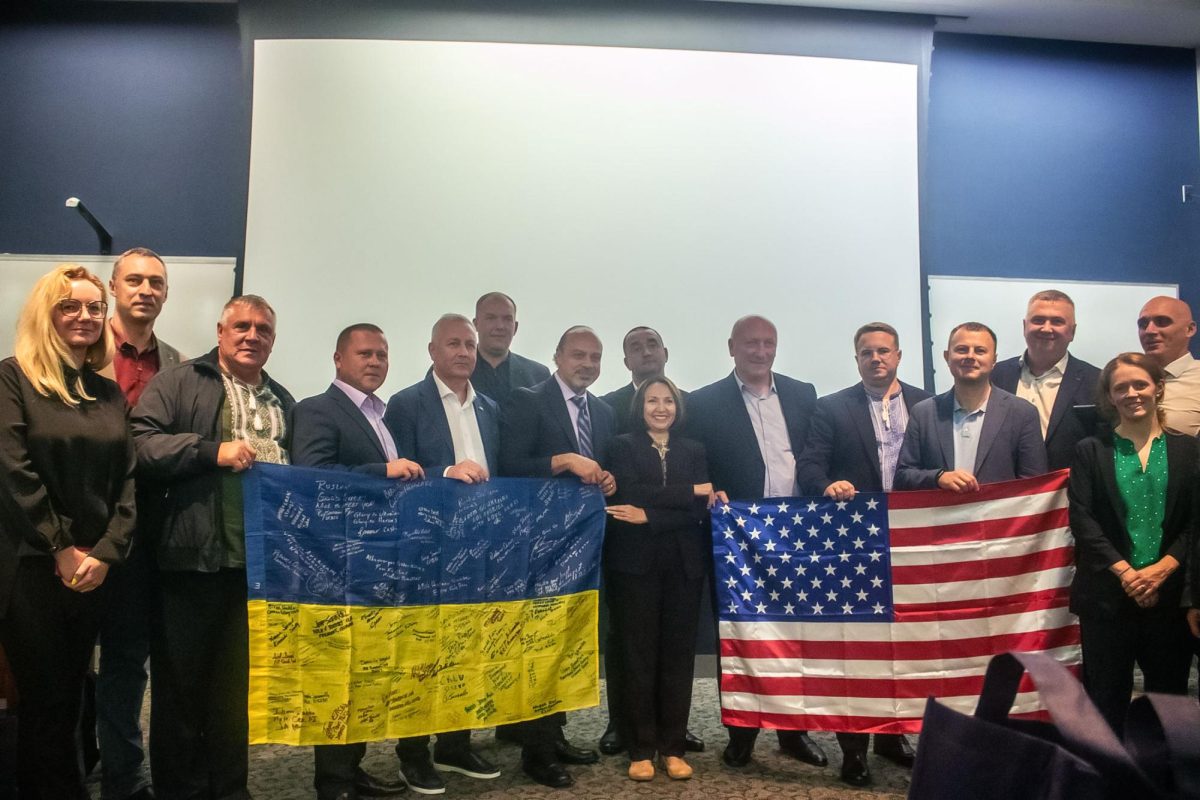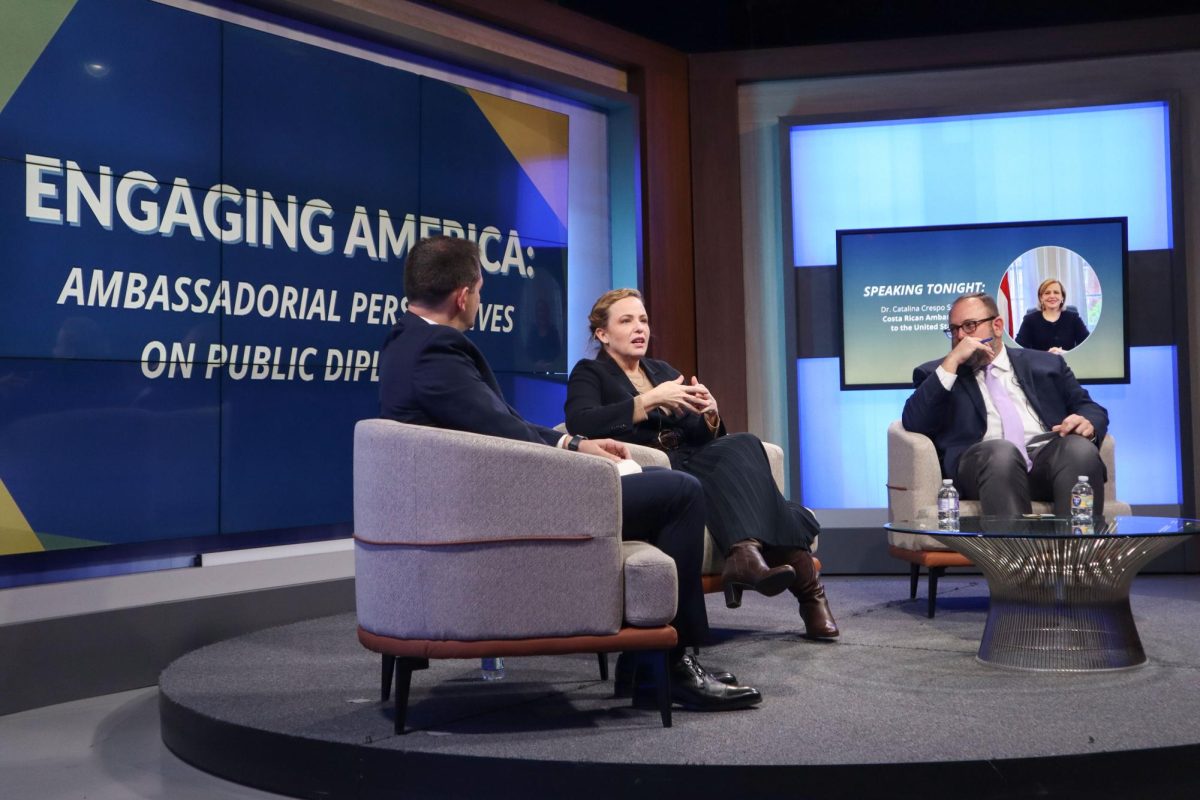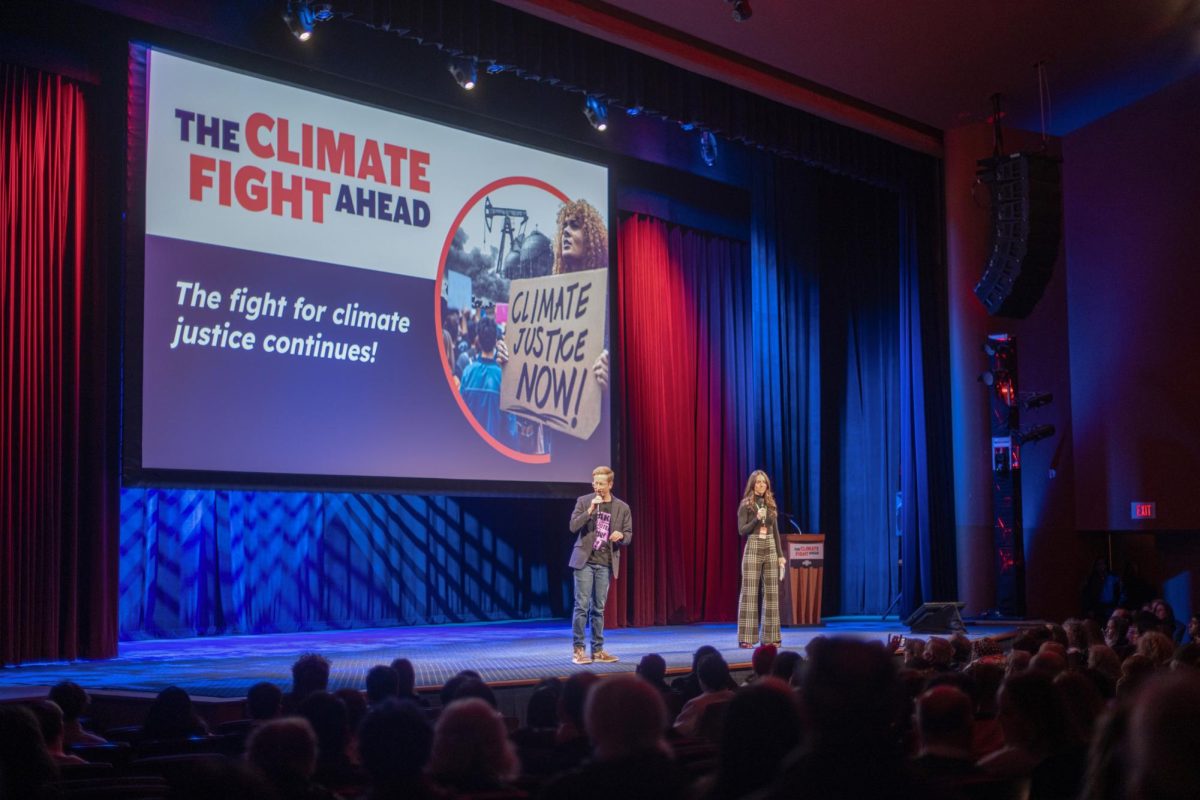Three mayors from regions of Ukraine that have been deeply affected by the Russian invasion discussed the current state of tourism in Ukraine at an event at the Elliott School of International Affairs on Tuesday.
Oleksandr Syenkevych, the mayor of Mykolaiv — a town in southern Ukraine — sat alongside mayors Riznyk Mykola of Opyshnya and Vasily Andrieshin of Burshtyn said they are optimistic about the future, and that Ukraine will eventually return to normalcy after the war and revitalize its strong tourism economy in the process. The event was cosponsored by the GW School of Business’ Master of Science in tourism, hospitality and event management program.
Seleni Matus, executive director of the International Institute of Tourism Studies at the business school opened the discussion by speaking about the country’s resilience and the future of the Ukrainian tourism industry in a moment that is “challenging.”
The panel was originally slated to have representatives from four regions in Ukraine, but the representative from the city of Zaporizhzhia was unable to attend the event as their city was currently under active rocket fire.
“We’re talking about resilience and the future of Ukraine’s tourism industry in a moment that is very challenging, and this challenge has manifested even this evening, as you know, the delegation that was intended to be here has sort of shifted as the conflict has affected the different communities and the mayors that were scheduled to be here,” she said.
Andrieshin said despite its distance from direct conflict, Burshtyn had been targeted by Russia for their vital infrastructure, like farms. Upon taking office, he said he recognized the significance of tourism to Ukraine’s economy, highlighting the region’s natural beauty and rich biodiversity in a community of around 25,000 residents.
“The territory is famous that there is the biggest concentration of flora and fauna in Europe. Scientists from Germany, Poland, Czech Republic are coming each year to this place, so our main task is how to preserve this area,” he said.
Mariana Oleskiv, chairperson at the State Agency for Tourism Development of Ukraine, said the tourism industry in Ukraine has proven to be resilient even in dire circumstances and has maintained its global presence.
The number of foreign tourists entering Ukraine has increased in the past year, with over two million visitors in 2023 according to Visit Ukraine Today, in 2019 — before the COVID-19 pandemic — over 13 million tourists entered the country. The Kyiv Independent reported that some tourists have been going to Ukraine to see the effects of the war, touring what remains of communities that were destroyed by the war.
“So many, many people support us, the exhibitions, tourism and the community that unites to organize it,” she said. “So I think this is something that really helps us to be on the spot flying and to tell that Ukraine is still here, being resilient, fighting and developing tourism.”
Syenkevych said Ukraine has many different kinds of tourism including business, industrial, eco-friendly and dark tourism, the latter of which he described as an underground tour experience that allows tourists to explore old bunkers, trenches and other tunnels.
Syenkevych said the Mykolaiv region has a mine that once held launch systems for intercontinental rockets and is now a tourist attraction.
“You can see these places where people lived, where people launched this rocket, and you can even click and launch a rocket,” he said, “It’s really interesting because it’s really, you can’t believe that it was made by people.”
Vira Savchenko, who oversees the audit and consulting company BDO Ukraine, said each day Ukraine is making significant strides in rebuilding and moving forward, and the international community is vital in supporting Ukraine’s recovery. She said some international services have adapted to the situation, like Uber which has put a curfew on its service that lasts from midnight till 5 in the morning.
“Tourism is very important for every country and now for Ukraine,” she said. “Our recovery and reconstruction cannot wait until the end of the war. Ukraine is a big country, and we need to live our lives now.”











